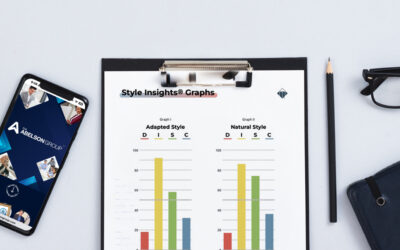Did you ever wonder what makes some people born to be leaders while others are born just to obey those leaders? Or why do some individuals make hasty decisions while others proceed slowly in decisional processes? The answers may well be in terms of personality style. The DISC is one of the tools that is applied to determine such distinctions. It’s a personality assessment test that categorizes people into four key personality types: This consists of the following sub-categories: dominance, influence, steadiness, and conscientiousness.
1. Dominance (D): The Decisive Leaders
A high (D) style can be characterized as assertive, taking action, and putting direct pressure. They are strong-willed people who always long for the outcome and do not mind being the first ones to start a movement. People with this style like to attend to objectives and consequences while disregarding the process, aiming at excessive administering. They operate well in contexts where they can create, invent, or find a solution that would make them win.
Key Traits of D-style People:
● Decisive: They are quick to make decisions and do it instinctively.
● Goal-oriented: They are driven by outcomes and tend to reach for them with moderate urgency.
● Confident: It prepared them by making them confident in their capacities and not afraid to take risks.
● Challenging: They like to solve problems, they like challenges, and they like to get past barriers and come up with better strategies.
2. Influence (I): The Charismatic Connectors
Those having high scores on the Influence (I) scale are assertive and gregarious, and they are also confident, optimistic, and forceful. Usually, they crave communication and show people positive emotions and jokes. The I-style personality developed in an individual makes them thrive in social situations as they tend to encourage other people.
Key Traits of I-style People:
● Social and outgoing: They have the diplomatic disposition of meeting and relating to individuals for the initial time.
● Persuasive: They are so magnetic and passionate that they can easily persuade individuals to do what is required of them.
● Optimistic: They tend to be optimists and encourage others to be a part of that positivity as well.
● Creative: Most people in this group are creative and like to generate solutions with other people.
3. Steadiness (S): The Supportive Team Player
The Steadiness (S) is a business personality profile that emphasizes patience, loyalty, and steady performance. S style is characterized by efficiency, compliance, and responsiveness; people with a high S style are steady and loyal, rather than choosing to perform their duties in a stable, low-conflict context. They are good team players. In most cases, they are understanding of the worries of others.
Key Traits of S-style People:
● Patient: They are composed and do not get easily stressed or pressured.
● Reliable: They are reliable, and more so, they follow through as and when they promise to do something.
● Supportive: It is found that they have more concern towards others, and they should always work in a team.
● Loyal: They prefer to cultivate long-term bonds and they are invested in the ones they love.
4. Conscientiousness (C): The Detail-Oriented Perfectionists
Individuals with a high C style are analytical, precise individuals who are very much concerned with the details. They love order, and small things are usually done to perfection, and they are relieved to do work that needs a lot of concentration. Employment of people with such style is best enjoyed in organizations that have set down structures that the employee has to adhere to as far as encouraging performance is concerned.
Key Traits of C-style People:
● Analytical: They like to engage in elaborate analytical thinking to solve difficult issues.
● Detail-oriented: They are particular about figures to correct or improve on them afresh.
● Organized: They tend to thrive in a highly organized ambiance as opposed to a more chaotic setting.
● Critical thinkers: They often doubt things and try to find the most effective approach.
Conclusion
When you know the DISC assessment and the primary style, it is easy to find ways to adapt to distinct working environments and to improve your cooperation with people around you. The four styles are valuable in their unique ways, and realizing these differences leads to more cohesion in a working environment.
The Abelson Group gives you an indication of your natural tendencies, but other aspects of emotional intelligence should be worked on as well. Emotional intelligence assessment for personal and work use can assist in developing empathy, achieving emotional regulation, and practicing effective interpersonal relationships. When you integrate both sorts of self-assessments, you develop increased self-awareness and a better understanding of the nature of human behavior.




